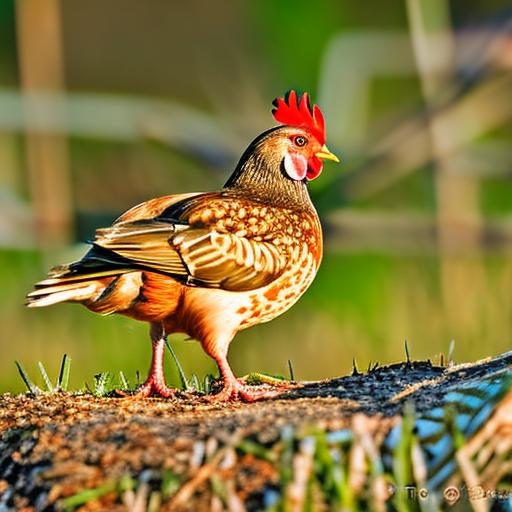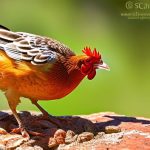Keeping chickens in Butner, North Carolina is a popular and rewarding hobby for many residents. It allows individuals and families to have a sustainable source of fresh eggs, while also providing numerous other benefits. Butner, with its rural setting and ample space, is an ideal location for raising chickens. In this article, we will explore the benefits of raising chickens in Butner, the local laws and regulations that need to be followed, choosing the right breeds for the climate, building the perfect coop, feeding and watering your chickens, protecting them from predators, caring for their health, and collecting and using fresh eggs.
Key Takeaways
- Keeping chickens in Butner can be a rewarding and enjoyable experience.
- Raising chickens can provide benefits such as fresh eggs, pest control, and fertilizer for your garden.
- It is important to understand local laws and regulations for keeping chickens in Butner.
- Choosing the right breeds of chickens for the climate in Butner is crucial for their health and well-being.
- Building a proper coop and providing adequate food, water, and protection from predators is essential for keeping chickens in Butner.
The Benefits of Raising Chickens in Butner
One of the main benefits of raising chickens in Butner is having a constant supply of fresh eggs. There is nothing quite like collecting eggs from your own backyard flock and enjoying them for breakfast or in your favorite recipes. Not only are fresh eggs delicious, but they are also more nutritious than store-bought eggs. Chickens that are allowed to roam freely and eat a varied diet produce eggs that are higher in omega-3 fatty acids, vitamins A and E, and beta-carotene.
Another benefit of raising chickens in Butner is the fertilizer they provide for your garden. Chicken manure is rich in nitrogen, phosphorus, and potassium, which are essential nutrients for plant growth. By composting chicken manure and adding it to your garden soil, you can improve its fertility and promote healthy plant growth. This natural fertilizer is also more environmentally friendly than synthetic fertilizers.
Chickens are also excellent at controlling pests in your yard and garden. They love to eat insects such as slugs, snails, beetles, and even small rodents. By allowing your chickens to free-range in your yard or garden, you can reduce the population of these pests without the need for harmful pesticides. This not only benefits your garden but also promotes a healthier ecosystem.
Raising chickens in Butner also provides educational opportunities for children. Children can learn about the life cycle of chickens, how to care for them, and the importance of sustainable food sources. They can also develop a sense of responsibility and empathy by taking care of the chickens and collecting eggs. This hands-on experience can be a valuable learning tool and help children develop a deeper connection with nature.
Understanding Local Laws and Regulations for Keeping Chickens
Before starting your own backyard flock in Butner, it is important to research and understand the local laws and regulations regarding keeping chickens. Each municipality may have its own specific rules, so it is essential to check with your local government or zoning department.
In Butner, there are specific guidelines that need to be followed when keeping chickens. These guidelines include obtaining necessary permits, following guidelines for coop placement and size, and adhering to any restrictions on the number of chickens allowed.
To obtain the necessary permits, you will need to fill out an application and pay any associated fees. The application will typically require information such as the number of chickens you plan to keep, the size and location of your coop, and any measures you will take to prevent odor or noise issues.
When it comes to coop placement and size, there are usually guidelines in place to ensure that the coop is not too close to neighboring properties or structures. Coop size requirements may vary depending on the number of chickens you plan to keep. It is important to follow these guidelines to ensure the health and safety of your chickens and maintain good relationships with your neighbors.
Choosing the Right Breeds of Chickens for Butner Climate
When choosing breeds of chickens for Butner, it is important to consider the climate and weather patterns in the area. Butner experiences a humid subtropical climate with hot summers and mild winters. This means that you will need to choose breeds that are well-suited for these conditions.
Some breeds that are well-suited for the Butner climate include Rhode Island Reds, Plymouth Rocks, and Sussex. These breeds are known for their hardiness and ability to tolerate both heat and cold. They also tend to be good layers, producing a consistent supply of eggs throughout the year.
Other factors to consider when selecting breeds include egg color, temperament, and size. If you prefer a specific egg color, such as brown or blue, there are breeds available that lay eggs in those colors. If you have children or plan to handle your chickens frequently, it is important to choose breeds that are known for their friendly and docile nature. Additionally, if you have limited space or live in an urban area, you may want to choose smaller breeds that require less space.
Building the Perfect Coop for Your Chickens in Butner
Building a coop is an essential part of keeping chickens in Butner. The coop provides shelter and protection for your chickens, keeping them safe from predators and the elements. When building a coop, there are several materials needed and design considerations to keep in mind.
The materials needed for building a coop include lumber, hardware cloth or chicken wire, roofing material, screws or nails, and paint or stain for weatherproofing. It is important to use sturdy materials that can withstand the elements and provide adequate protection for your chickens.
When designing a coop, it is important to consider the size and number of chickens you plan to keep. The general rule of thumb is to allow at least 4 square feet of floor space per chicken inside the coop and 10 square feet per chicken in the outdoor run. This will ensure that your chickens have enough space to move around comfortably.
The coop should also have proper ventilation to prevent moisture buildup and ensure good air circulation. This can be achieved by adding windows or vents that can be opened or closed as needed. Additionally, the coop should have nesting boxes for the chickens to lay their eggs and roosting bars for them to sleep on.
Maintaining a clean and healthy coop is essential for the well-being of your chickens. Regularly cleaning out the coop and replacing bedding will help prevent the buildup of bacteria and parasites. It is also important to provide fresh water and feed daily, as well as regularly inspecting the coop for any signs of damage or wear.
Feeding and Watering Your Chickens in Butner

Feeding and watering your chickens properly is crucial for their health and well-being. Chickens require a balanced diet that includes a combination of grains, protein, vitamins, and minerals. There are several factors to consider when it comes to feeding and watering your chickens in Butner.
When choosing the right feed for your chickens, it is important to select a high-quality commercial feed that is specifically formulated for laying hens. This feed should contain the necessary nutrients, such as protein, calcium, and vitamins, to support egg production and overall health. You can also supplement their diet with kitchen scraps, fruits, vegetables, and grains.
Fresh water is essential for chickens, especially during hot summer months. Chickens can drink a surprising amount of water each day, so it is important to provide them with a clean and constant supply. It is recommended to use a waterer that can be easily refilled and cleaned to ensure that the water remains fresh and free from contaminants.
When feeding and watering your chickens, it is important to establish a routine. Chickens thrive on consistency, so feeding them at the same time each day will help keep them healthy and happy. It is also important to monitor their food and water intake to ensure that they are getting enough nutrients and hydration.
Protecting Your Chickens from Predators in Butner
Protecting your chickens from predators is essential when keeping them in Butner. There are several common predators in the area that pose a threat to chickens, including raccoons, foxes, coyotes, and hawks. Taking measures to secure your coop and run will help keep your chickens safe.
Building a secure coop and run is the first line of defense against predators. The coop should be made of sturdy materials and have a solid floor to prevent predators from digging underneath. Windows and vents should be covered with hardware cloth or chicken wire to prevent entry.
The run should also be securely fenced with hardware cloth or chicken wire, buried at least 12 inches deep to prevent digging. It is important to regularly inspect the fencing for any signs of damage or wear and repair as needed. Additionally, providing a covered area in the run will protect your chickens from aerial predators such as hawks.
Other measures you can take to keep predators away from your chickens include installing motion-activated lights or alarms, using predator deterrents such as noise makers or reflective tape, and keeping the area around the coop clean and free from potential hiding spots for predators.
Caring for Your Chickens’ Health in Butner
Caring for your chickens’ health is crucial when keeping them in Butner. Chickens are susceptible to various illnesses and diseases, so it is important to be vigilant and take preventative measures to keep them healthy.
Some common signs of chicken illnesses include lethargy, loss of appetite, abnormal droppings, respiratory issues, and changes in behavior. If you notice any of these signs, it is important to seek veterinary care as soon as possible. Finding a veterinarian who specializes in poultry can be beneficial, as they will have the knowledge and experience to diagnose and treat chicken-specific illnesses.
Preventative measures can help keep your chickens healthy and reduce the risk of illness. This includes providing a clean and dry environment, regular cleaning of the coop and run, and practicing good biosecurity measures. Quarantining new chickens before introducing them to the flock can also help prevent the spread of diseases.
Additionally, providing a balanced diet, including a calcium supplement such as oyster shell for laying hens, will help support their overall health and egg production. Regularly inspecting your chickens for any signs of parasites, such as mites or lice, and treating them promptly will also help keep them healthy.
Collecting and Using Fresh Eggs from Your Chickens in Butner
Collecting and using fresh eggs from your chickens in Butner is one of the most rewarding aspects of keeping chickens. There are several tips to keep in mind when it comes to collecting, storing, and using fresh eggs.
When collecting eggs, it is important to do so regularly to prevent them from becoming dirty or damaged. It is best to collect eggs at least once a day, preferably in the morning when the chickens are most active. Gently remove the eggs from the nesting boxes and place them in a clean container or basket.
Storing fresh eggs properly will help maintain their freshness and quality. Eggs should be stored in a cool and dry place, such as a refrigerator, with the pointed end down. This helps keep the air cell intact and prevents bacteria from entering through the porous shell.
Fresh eggs can be used in a variety of recipes, from breakfast dishes to baked goods. They can be scrambled, fried, boiled, or used as an ingredient in cakes, cookies, and other desserts. The possibilities are endless when it comes to using fresh eggs in your cooking and baking.
Enjoying the Rewards of Raising Chickens in Butner
In conclusion, raising chickens in Butner offers numerous benefits, including a constant supply of fresh eggs, natural fertilizer for your garden, pest control, and educational opportunities for children. By understanding and following local laws and regulations, choosing the right breeds for the climate, building a secure coop, and providing proper care and nutrition, you can enjoy the rewards of raising chickens in Butner. So why not start your own backyard flock and experience the joys of keeping chickens in Butner?
If you’re considering keeping chickens in Butner, you’ll want to make sure you have a suitable chicken coop. One important aspect to consider is the flooring of the coop. To learn more about the different options available and which one might be best for your setup, check out this informative article on poultrywizard.com: Floor of Chicken Coop. It provides valuable insights and tips on choosing the right flooring material for your chicken coop in Butner.
FAQs
What is Butner?
Butner is a town located in Granville County, North Carolina, United States.
Is it legal to keep chickens in Butner?
Yes, it is legal to keep chickens in Butner. However, there are certain regulations and guidelines that need to be followed.
What are the regulations for keeping chickens in Butner?
According to the Butner Town Code, residents are allowed to keep up to six chickens on their property. The chickens must be kept in a secure enclosure and cannot be allowed to roam freely. Additionally, the enclosure must be kept clean and free from odors.
Do I need a permit to keep chickens in Butner?
No, you do not need a permit to keep chickens in Butner. However, you must comply with the regulations set forth in the Butner Town Code.
What are the benefits of keeping chickens in Butner?
Keeping chickens in Butner can provide a source of fresh eggs, as well as fertilizer for gardens. Chickens can also be entertaining and educational pets for children.
What are the potential drawbacks of keeping chickens in Butner?
Some potential drawbacks of keeping chickens in Butner include noise, odor, and the possibility of attracting predators such as raccoons or foxes. Additionally, chickens require daily care and maintenance, which can be time-consuming.
Meet Walter, the feathered-friend fanatic of Florida! Nestled in the sunshine state, Walter struts through life with his feathered companions, clucking his way to happiness. With a coop that’s fancier than a five-star hotel, he’s the Don Juan of the chicken world. When he’s not teaching his hens to do the cha-cha, you’ll find him in a heated debate with his prized rooster, Sir Clucks-a-Lot. Walter’s poultry passion is no yolk; he’s the sunny-side-up guy you never knew you needed in your flock of friends!







